

His voice, especially in the velvety, rounded lower edge of the baritone tessitura, was explosive from start to finish. His bitter denouncing of Alberich, the octave leap in which he declares “das Ende!” attacked the opera house like a bolt of sonic lightning. And the finish of his harrowing “Leb’ wohl” to Brünnhilde, when he finally fully grasps what has happened, was breathtaking. His robust voice now spent—as he made us believe—he crumpled to his knees, and while the entire house grew hushed, he sang-whispered the loss of his dynastic dream. It was sheer magic. The performance of a lifetime.
From his recent triumph as at the Met as the Hollander, to the many Wotans in European halls that have honed his confidence in the role, Konieczny is in the prime of his stardom. His charismatic Wotan in this 2023 “Ring” gave lucky audiences everything they came for. Clad in a Naples yellow suit and sexy platinum haircut longer on one side to suggest the missing eye, Konieczny’s Wotan was a swaggering flawed pater familias, as troubled and petulant as any of his children or siblings. He drinks, he lusts, he bullies, and he drinks some more. Instead of leading his bickering family proudly across the rainbow bridge at Rheingold’s end, Konieczny literally danced his way through the final bolero alone, on a balcony high over the stage. Reveling in his own fantasy, in a moment of electrifying stagecraft.
His tremendous baritone roams a wide emotional frontier, from tenderness to ferocity with equal ease. Reaching down to a velvety, growling bass, he was capable of floating the long vowels at the top of his range before biting off the final consonants. Devouring the role, Konieczny is everything opera should be, certainly Wagner’s operatic vision of the Gesamptkunstwerk. On a stageful of dazzling singers, he is also—and perhaps foremost—an actor. Konieczny’s super power is his ability to inhabit and reveal his character from the inside out.
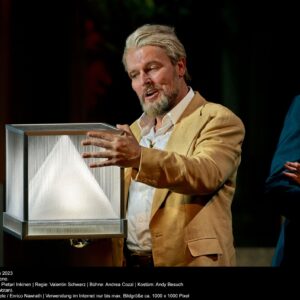

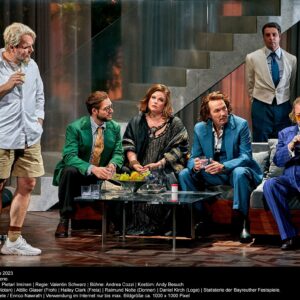

„Tomasz Konieczny’s sensational Alberich is gorgeously sung yet full of menace.”




„The standout member of the cast was Tomasz Konieczny, a powerhouse bass, in a breakthrough Met debut as Alberich. I tend to prefer portrayals that bring out Alberich’s suffering and bitterness; with a big, penetrating voice that can slice through the orchestra, Mr. Konieczny made Alberich sneering and dangerous.”




“The truth is that Konieczny conjured up one of the greatest Met performances of the season, creating a rich portrayal of a tragic figure who is scorned and rejected by those who feel themselves superior to him.”

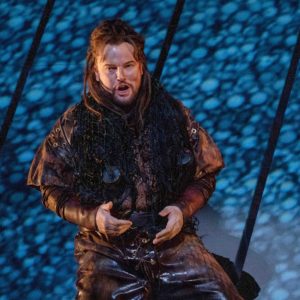


“(…) Tomasz Konieczny, jugendlich leuchtend freilich, singt diesen Jupiter in Salzburg schier unübertrefflich. Sein Bariton strömt in ebenmäßigem Legato, lichterfüllt, weich, voll Kraft und unermesslicher Großzügigkeit. Die Stimme strahlt perfekt über den mitschwingenden Kopf ab. Die Artikulation ist vorbildlich. (…)”
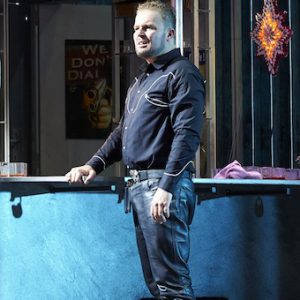

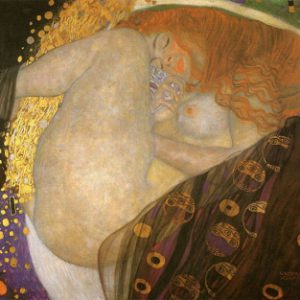

Ovationen auch für diese Glanzleistung und für den stimmgewaltigen Telramund von Tomasz Konieczny, dem das Kämpfen näher zu sein scheint als das Nachdenken. Beeindruckend die voluminöse, sicher geführte Stimme(…)”
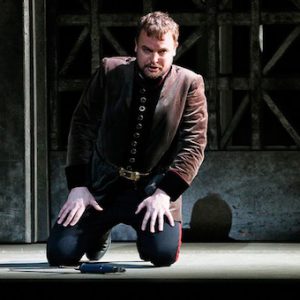



Tomasz Konieczny absolutely reveled in the challenges of Jochanaan’s feisty lines. The Polish baritone’s rather “earthy” timbre, dark and gleaming, rode the orchestra excitingly in this vocal marathon – well-complimented by his commandingly resolute stature. Considering the feast, it may seem rapacious to plead for clearer diction – but further pointing of the text could only profit this already imposing figure.(…)


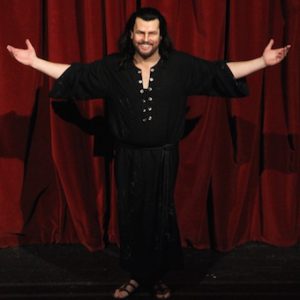

In a powerful portrayal, Tomasz Konieczny deploys his rich and expressive baritone to suggest not just Wozzeck’s misery but also his unrealised potential.




Yet most impressive was the subtlety and humanity of Konieczny’s performance. His Wozzeck is natural and almost underplayed in the early scenes, putting up with the buffoonish Captain and whack-job Doctor with patient forbearance. As Marie’s infidelity and other humiliations pile up and begin to prey upon his psyche, Konieczny makes Wozzeck’s increasing illusions and hallucinations seem organic and inevitable in an almost clinical fashion. This was a sensational, devastating debut by a singer one hopes will return soon to Chicago. (…)




“(…) Dazu kommt eine große Anzahl großer Partien, die Tomasz Konieczny mit stets gleichem Feuer umsetzt. Alleine an der Wiener Staatsoper, die für ihn eine künstlerische Heimat darstellt, hat er seit seinem Debüt im Jahr 2008 an rund 120 Abenden viele große Partien gesungen. Unter anderem Jochanaan in der Salome, Jack Rance in Fanciulla del West, Wotan/Wander sowie Alberich im Ring, Mandryka in Arabella, Dreieinigkeitmoses in Aufstieg und Fall der Stadt Mahagonny, Goldhändler in Cardillac, Pizarro in Fidelio, Scarpia in Tosca … Immer mit derselben gesanglichen und darstellerischen Intensität, immer mit einer Absolutheit in der künstlerischen Gestaltung. Geht jemand mit einer solch emotionalen Unbedingtheit an die Sache heran, so vermutet man ein reines Bauch-Mensch-tum; dass es nicht immer so sein muss, beweist Konieczny, der sowohl Kopf- als auch Bauchmensch ist, beziehungsweise eine Mischung aus beidem.(…)”

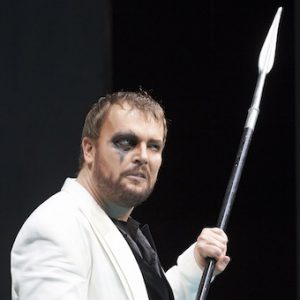
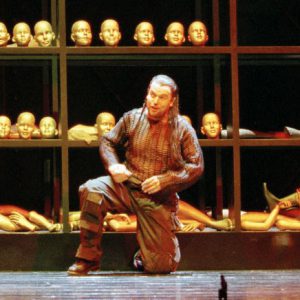

“(…) Nur ein einziges Mal ballt sich diese Aufführung daher zu echter musikdramatischer Wucht: Dank Tomasz Koniecznys Alberich war die Szene, die im alles entscheidenden Fluch des Nibelungen gipfelt, vokal wie orchestral von atemberaubender Stringenz. Ein paar Minuten großen Welttheaters, das auch die Beiläufigkeit des Bühnenarrangements vergessen ließ – da war man auf jener Höhe angelangt, in der die Vergleichsluft schon dünn wird. Bleibt zu hoffen, dass man im Münchner „Ring“-Abenteuer noch ein paar solcher Gipfelsiege feiern darf.(…)”

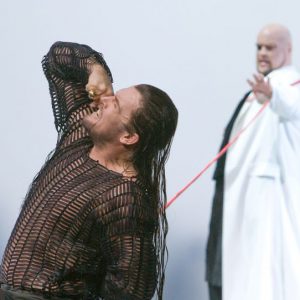
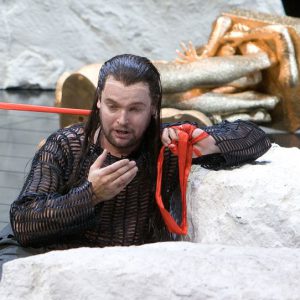

“(…)Sängerisch und darstellerisch war der polnische Bassbariton Tomasz Konieczny als Alberich der unumstrittene Star des Abends.(…)”
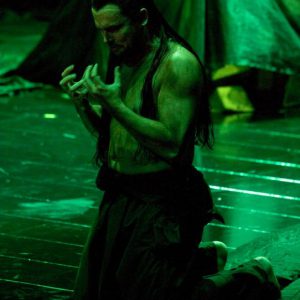
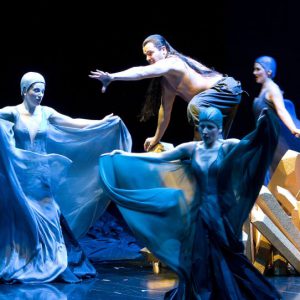


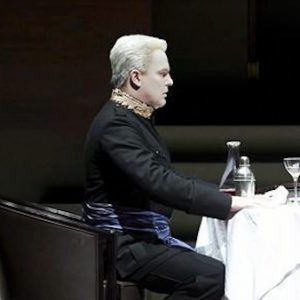



(…) Tomasz Konieczny, was excellent, bringing stentorian power and unusual dignity to this prophet, who pays with his life for resisting Salome’s twisted sexual needs and usually comes off as a pompous fanatic (…)


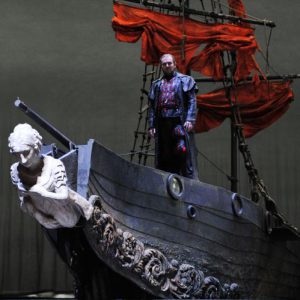

(…) Tomasz Konieczny was a revelation as Jochanaan. Mr. Konieczny has a voice of exceptional power which he unleashed with unflagging vitality, establishing the character as a vocal bulwark of godliness in a perverse and vulgar world. His thundering condemnations of Herodias sung from offstage built our anticipation for the great dialogue between Salome and the prophet. Once onstage, Mr. Konieczny’s voice seemed to quadruple in amplitude; the louder Maestro Nelsons drove the orchestra, the more powerful the bass-baritone’s voice seemed to become. But the singer was also capable of deeply-felt lyricism, as in the great passage where he tells the princess: “Go seek Him. He is in a boat on the sea of Galilee, and He talketh with His disciples. Kneel down on the shore of the sea, and call unto Him by his name. When he cometh to thee, and to all who call on Him He cometh, bow thyself at His feet and ask of Him the remission of thy sins.” Mr. Konieczny was so incredibly persuasive here that I thought I might start going to church again. But Jochanaan’s gentle aspect swiftly vanishes as Salome continues to tell him of her lascivious desires for him. In a rage of towering indignation, Jochanaan hurls his final imprecation at her: “Du bist verflucht!” (“You are accursed!”) and here Mr. Konieczny unleashed a final note of staggering power which he then, as the orchestral tidal wave came crashing in, amazingly sustained with a phenomenal crescendo. As he made his exit, I sensed that the audience desperately wanted to burst into applause; of course it didn’t happen, but it should have (…)

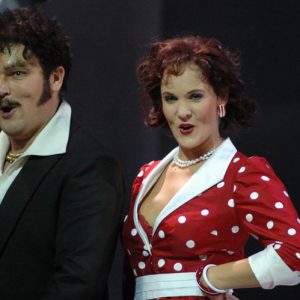
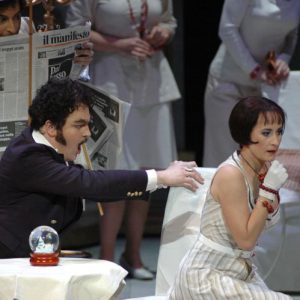

(…)Tomasz Konieczny´s stage appearance, his wonderful voice, perfect for this role did the Munich Rheingold to an extraordinary experience. (…)
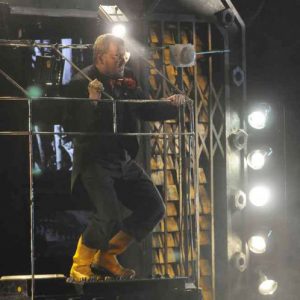

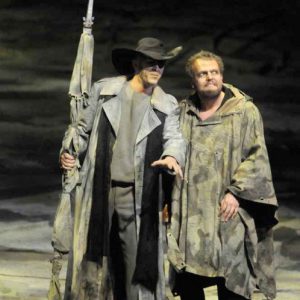

(…) Kiedy Tomasz Konieczny zagrał w filmie u Andrzeja Wajdy, poczuł, że dobrze wybrał, ale dziś na najlepszych scenach i estradach Europy robi błyskotliwą karierę w zupełnie innym fachu.(…)


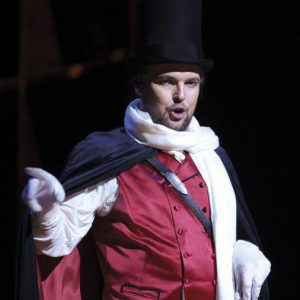

(…)Tomasz Konieczny. Er lief als Walküren-Wotan zur Höchstform auf. Seine Lebensbeichte geriet packend, alle Brüche und Widersprüchlichkeiten der Figur wurden nachvollziehbar. Mit einem Bariton, dunkel und voluminös wie eine Posaune, metallisch und von schier unerschöpflicher Kraft, steigerte er sich, je weiter es auf den Schluss zu ging, was Marek Janowski und dem Orchester auch noch im dritten Akt ungeheuer lautstarke Höhepunkte erlaubte. Koniecznys starke Präsenz als Dreh- und Angelpunkt der Handlung war ein wichtiger Faktor, um die Aufführung über die gefürchteten „Längen“ der Dialoge zu tragen. Und auch leise Momente wagte er. Sein Abschied von Brünnhilde krönte seine Darstellung – ein triumphaler künstlerischer Erfolg.(…)

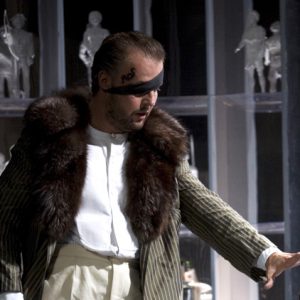
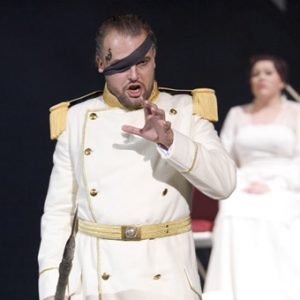

Eine “Walküre” für höchste Ansprüche! Franz Welser-Möst, die fulminant musizierenden “Wiener” und ein perfektes Ensemble feierten in dieser “Wallküre” einen Triumph: Jubel besonders für den debütierenden “Wotan” Tomasz Konieczny und “Siegliende” Ricarda Merbeth! …Tomasz Konieczny ist ein junger, strahlender Wotan. Die Diktion ist perfekt, sein kraftvoller Bassbariton setzt sich selbst bei gewaltigen Orchesterentladungen wunderbar durch. Und er gibt dem resignierenden Gott tiefe Empfindungen, spielt – etwa in der spannenden Fricka-Szene – einen Scheiternden, der das Ende herbeisehnt…
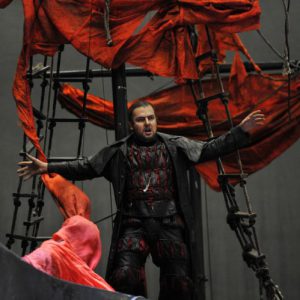

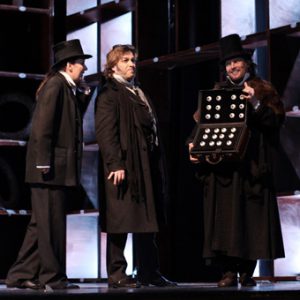

„Salome“ von Richard Strauss mit Camilla Nylund in der Titelpartie auf imposanten Orchesterwogen. Ein Repertoire-Abend mit großen Momenten. Als sinnlicher Rausch wirkte die „geheimnisvolle Musik“. (…)Dazu passte der gleichfalls jung wirkende Tomasz Konieczny bestens, der erstmals in Wien als Jochanaan zu hören war und vor allem mit kräftig-viriler Stimmgewalt auf sich aufmerksam machte(…)
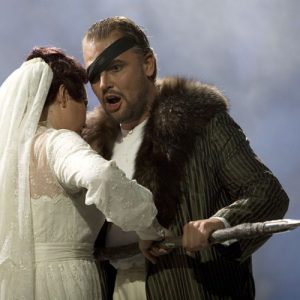



Zur 2. AIDS-Gala begrüßt das Opernhaus Düsseldorf elf hochkarätige Künstler aus der ganzen Welt, die mit ihren Lieblings-Arien für einen unvergesslichen Abend sorgen. Darunter auch Tomasz Konieczny und Anett Fritsch.

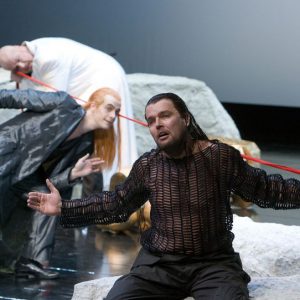


…Of the soloists, the bass Tomasz Konieczny was especially affecting, with one of those gravelly, tenebrous voices that could make anything sound significant…




Von Kurt Vlach



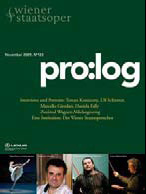
…Bis zu seinem Debüt als Alberich in der neuen Wiener RING-Produktion kannte hierzulande kaum jemand den Namen Tomasz Konieczny. Doch seine fulminante Interpretation des finsteren Nibelungen, später auch jene des Fra Melitone in Verdis FORZA DEL DESTINO und des Amfortas im PARSIFAL machte ihn schlagartig zu einem Publikumsmagneten, dessentwillen allein sich manch ein Opernfreund zu einem Vorstellungsbesuch entschließt. Im November wird er in den beiden kompletten RING-Zyklen einmal mehr als Alberich zu hören sein. Aus diesem Anlass führte Andreas Láng mit Tomasz Konieczny das folgende Gespräch….




…Und damit sind wir schon beim Glanzvollsten dieses “Rheingolds”, denn es galt einen sensationellen Alberich in Gestalt von Tomasz Konieczny zu entdecken, der ja schon in “Siegfried” und “Götterdämmerung” auf sich aufmerksam machte. Nach seiner jüngsten Leistung zählt er zur absoluten Weltspitze…





Von MARTIN ROBERT BOTZ

Aus Sven-Eric Bechtolfs delikater Personenführung und Franz Welser-Mösts wuchtiger Orchesterarbeit entstand lebendiges Musiktheater 03. Mai 2009 19:16 MESZ




UMWERFENDE DRAMATISCHE ENTLADUNGEN

Von Renate Wagner




…Ein Monument von einem Golaud ist Tomasz Konieczny, der mit seinem großen Heldenbariton alle sychologischen Facetten der Figur zeichnet. Der Sänger, der auch eine schauspielerische Leistung bietet, die bis in die kleinste Handbewegung ausgefeilt ist, singt und spielt die Zerbrechlichkeit und Zerstörungskraft die Figur mit einer umwerfenden Präsenz…




Vier Stunden lang sind hier herrliche Opernstimmen zu hören…




Richard Strauss’ “Die Frau ohne Schatten” ist in Düsseldorf ein grandioser Erfolg.

…Tomasz Koniecznys Debüt als Barak ist dagegen ein Musterbeispiel klug differenzierter Gestaltung, sowohl in vokaler wie in szenischer Hinsicht…

OPER. Fursioser Saisonauftakt mit “Die Frau ohne Schatten” von Richard Strauss …und Tomasz Konieczny adelt den Färber “Barak” mit geschmeidigem Legato…




LA FORZA DEL DESTINO VON GIUSEPPE VERDI DIRIGENT: PAOLO CARIGNANI

Von Elena Habermann




JUNG-SIEGFRIEDS TRIUMPH




Siegfried, Staatsoper, Vienna

Furchtlos vor des Drachen Auge

…So auch Herwig Pecoraro, der einen köstlich verschmitzten wie teuflisch ausgefuchsten Mimen gab. Anna Larsson war eine beeindruckende Erda, Tomasz Konieczny ein großartiger Alberichund Ain Anger ein idealer Fafner…

…Grandios sind so gut wie alle Sänger. Ein Wagner-Ensemble, das man in dieser Güte nirgendwo anders findet. Da ist Opernchef Ioan Holender ein echter Coup gelungen. (…) Entdeckungen sind Tomasz Konieczny als Alberich und Anna Larsson als Erda…

John Fiore Theater Duisburg, Germany, 9. 3.2008 (MD) By Mark Duijnstee



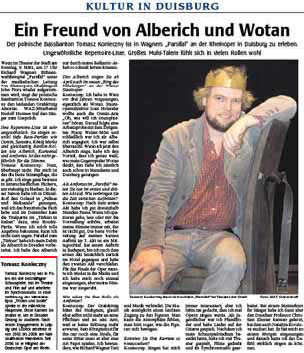
Wenn im Theater der Stadt am Sonntag, 9. März, um 17 Uhr Richard Wagners Bühnenweihfestspiel “Parsifal” unter der musikalischen Leitung von Rheinopern-Chefdirigent John Fiore wieder aufgenommen wird, singt der polnische Bassbariton Tomasz Konieczny den leidenden Gralskönig Amortas. WAZ-Mitarbeiter Rudolf Hermes traf den Sänger zum Gespräch. …Den Alberich singen Sie ab April auch im neuen “Ring des Nibelungen” an der Wiener Staatsoper. Konieczny: Ich habe in Wien vor drei Jahren vorgesungen, eigentlich als Wotan. Staatsoperndirektor Ioan Holender wollte auch die Osmin-Arie “Oh, wie will ich triumphieren” hören. Darauf folgte eine Arbeitsprobe mit dem Dirigenten Franz Welser-Möst und schließlich war ich als Alberich engagiert. Ich war selbst überrascht. Wenn ich jetzt den Alberich singe, habe ich den Vorteil, dass ich genau weiß, was mein Gegenspieler Wotan denkt, den habe ich nämlich auch schon in Mannheim und Duisburg gesungen…

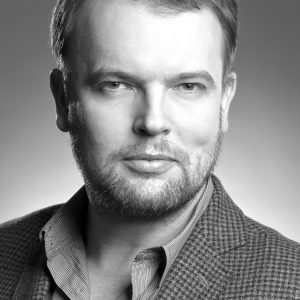

Von Stefan Schmöe

…Der Goloaud von Tomasz Konieczny wird zum Dreh- und Angelpunkt der Inszenierung. Sein elbstzerstörerischer Neid und seine Eifersucht, die nicht auf Liebe, sondern auf Verlustängsten beruhen, bringen den Stein ins Rollen. Zum Ausloten dieser Extremen Gefühlswelt zieht Konieczny souverän und kompromisslos alle Register seines satten, emotional vielschichtig einsetzbaren und herrlichen Baritons…

… Uwagę wszystkich zwrócił nieobecny dotąd na stołecznych estradach bas Tomasz Konieczny w partii Pustelnika. Śpiewak rozporządzający bardzo dobrą techniką i charakterystyczną barwą mocnego głosu powinien stać się ozdobą naszych scen…

Von Stefan Keim …Tomasz Konieczny lässt als in seiner Eifersucht verrannter Golaud heldisches Format erkennen und schafft mit klug gesetzten Zwischentönen eine manchmal beängstigende Seelenstudie. In diesem Golaud steckt ein gewalttätiger Psychopath aber auch eine große Hilflosigkeit. In ihm toben widerstreitende Gefühle, er findet keine Klarheit über sich selbst und gerät ins Taumeln. Golaud weiß nicht, wie er mit seinem Sohn aus erster Ehe (viel versprechend die junge Léa Pasquel) umgehen soll….

Von Stefan Schmöe …Sängerisch herausragend ist Tomasz Konieczny als Golaud, der zur dominanten Figur wird – darin auch unterstützt von der Regie. Mit einer Riesenstimme, die er mühelos kontrolliert und nie forcieren muss, kann er kraftvoll die dramatischen Akzente setzen, bleibt aber dennoch lyrisch und trifft den Gestus dieser Musik genau. Dazu besitzt er auch große schauspielerische Präsenz, mit der er, vor Eifersucht wütend, nicht nur Pelléas und Melisande physisch, sondern auch sich selbst psychisch zerstört…

…Tomasz Konieczny ist der darstellerisch und sängerisch das symbolistische Drama beherrschende Golaud: Eine suggestive Stimme, changierend zwischen düsteren Tönen der Verlorenheit, stupendem Angriff in der Aggressivität, geradezu samtenen Piani im Leiden – dazu ein Darsteller mit sensibler Ausdruckskraft!…

“Pelleas i Melizanda” Debussy’ego to jedna z 40 wrześniowych premier operowych w Niemczech. Niemiecka krytyka zwróciła przy tej okazji uwagę na utalentowanego polskiego śpiewaka i aktora




Die Deutsche Oper am Rhein bringt zu Beginn der Spielzeit “Pelléas et Mélisande” von Claude Debussy. In der klugen Inszenierung von Christof Nel bewährt sich ein erstrangiges Ensemble Von Michael Stenger …Und der Golaud von Tomasz Konieczny – ein Ereignis! Raumgreifend, die französische Sprache nuanciert auskostend, markant und ungemein charaktergenau….




…Nel findet außerordentlich starke Bilder, vor allem aber motiviert er seine Sängerdarsteller zu außergewöhnlichem Spiel: Tomasz Konieczny als Golaud trägt mit seiner selbstzerstörerischen Verzweiflung fast das Stück allein…

Von Guido Fischer …Und während als Pelléas der Tenor Dmitri Vargin die latente Tragik tonschön suggeriert, ist der Bariton Tomasz Konieczny ein überragend düsterer Golaud…

…Tomasz Konieczny in “Die Walküre” hingegen verkörpert einen adäquat jugendlich ungestümen, dabei stets schön phrasierenden Göttervater, formt die intimen Szenen des Zweifels in seinem Monolog beredt, lässt bloß die rüde auftrumpfende, auch in der Resignation noch gefährliche “Siegvater” Attitüde etwas vermissen…




…Eine Welle der Begeisterung schlug den Dreien entgegen, die nicht mehr zum Ensemble gehören, aber den “Ring 2000” maßgeblich mitgeprägt haben. Tomasz Konieczny, einst vor allem für seine unglaublichen Phonstärken berühmt, hat zu einem sehr viel differenzierteren Rollenporträt als Wotan und Wanderer gefunden – Kompliment!…

…Tomasz Konieczny schmetterte mit seinem frischen, wohlklingenden, immens höhenstarken Bariton einen ungewöhnlich jugendlichen Kurwenal und entwickelte damit natürlich auch eine ganz andere Sicht auf die Figur als manch gestandener Heldenbariton mit aufgerauhtem, schütterem Material und dröhnendem Sprechgesang im Karriereherbst…




…Kurwenal ist ein verzweifelt aggressiver Ratgeber, Tomasz Konieczny gibt ihm eine fulminant durchschlagskräftige Stimme mit beeindruckendem Potential. (…)Jane Eaglen, Renee Morloc und Tomasz Konieczny haben mit eruptivem Gesang und intensivem Ausdruck wesentlichen Anteil am triumphalen Erfolg des Abends…

Konzertante Aufführungen: TRISTAN UND ISOLDE, Rheinoper in der Tonhalle, 5.&16. Mai 2007




… Stark in ihren Rollen bleiben Renée Morloc (Brangäne), Hans-Peter König (Marke) und Tomasz Konieczny (Kurwenal). Sie tragen das Drama stärker als die beiden Stars….

… Stark in ihren Rollen bleiben Renée Morloc (Brangäne), Hans-Peter König (Marke) und Tomasz Konieczny (Kurwenal). Sie tragen das Drama stärker als die beiden Stars….
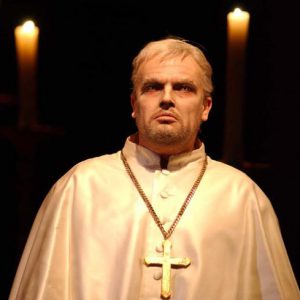


…Heimliche Hauptfigur des Abends ist durch seine überragende musikalische Präsenz Tomasz Konieczny als Zettel, den er mit beeindruckend großer Stimme (er hat auch Alberich und Wotan im Repertoire) singt. Dabei trifft er den komödiantischen Tonfall bestens, überzeichnet die Rolle, wo es notwendig ist, und gestaltet die Partie ebenso beweglich wie nuancenreich…




…Die schauspielernden Handwerker, wie alle anderen in moderner Kleidung agierend, überragt natürlich Zettel: Für Tomasz Konieczny eine Gelegenheit, sich als Opernmacho auf- und auszuspielen…

David Walsh inszenierte, Robert Reimer dirigierte Benjamin Brittens “Sommernachtstraum” im Ausweichquartier der Rheinoper in Düsseldorf. Sie setzten den Kinderblick des Komponisten auf das Stück kongenial um. VON ULRICH SCHREIBER




… Als Prachtkerl erwies sich erneut Tomasz Konieczny , sei es als prahlerischer Zettel, als eselshaftes Urviech oder gladiatorischer Pyramus…




…Aber der angeraute Ton stand der Komödie durchaus gut an und die komödiantische Seite war dann




…Tomasz Konieczny (Osmin) avancierte zum absoluten Publikumsliebling, sein schwarzer Bass mit der blonden Seele füllte die ROM bis in den letzten Winkel…

Die deutsche Oper am Rhein hat den polnischen Bariton Tomasz Konieczny jetzt fest ins Ensemble engagiert – Lis Schenk sprach mit ihm nach seinem grandiosen Auftritt in “Macht des Schicksals” in der Tonhalle Wer den Sänger im April als aufsässigen und stimmgewaltigen Fra Melitone in der grandiosen Konzertaufführung von Verdis Macht des Schicksals unter Leitung von GMD Fiore erlebt hat, vergisst diesen regelrecht “umwerfenden” Auftritt nicht. Wie er da schimpfend- singend von der Seite nach oben auf die Bühne stürmt und dabei sogar den großartigen Hans-Peter König als Padre Guardiano sozusagen an die Seite schiebt – das ist schauspielerische. Sängerkunst par excellence… …So kommt ein noch junger, hochgewachsener und sehr engagierter neuer Sänger in unser Ensemble, der letztes Jahr hier bereits als Gast den Osmin (Mozarts Entführung) und seit dem 6. Mai den Wotan in Wagners Rheingold – Wiederaufnahme mit viel Erfolg gab…




… Am ehesten szenisch spielte und sang Tomasz Konieczny den aufbrausenden Fra Melitone, drehte augenrollend und stimmgewaltig die Rolle ins Ironische….

…Nicht jeder verfügt über einen solch pastosen Orgelton wie Hans-Peter König, der den Pater Guardian

Tradiční inscenace netradičního díla …Pěveckému kvartetu protagonistů dominoval polský barytonista Tomasz Konieczny krásným hlasem i výrazem…

…Sängerisch ist diese “Salome” allerdings bestens bestückt: Ana–Katharina Behnke gestaltet die Titelrolle bis zuletzt ohne rmüdungserscheinungen und der sprachdeutliche, rund-kraftvolle Bariton des Tomasz Konieczny gibt seinem Jochanaan sängerisches Weltformat…




…Ein sängerischer Höhepunkt jagte hier den nächsten. Das Erscheinen des Großinquisitors sorgte für Momente, die unter die Haut gingen, kraft der insistierenden Gestaltung des Bassisten Tomasz Konieczny. Nachtschwarze Basswucht verband sich hier mit kraftvoller Markanz….



Von unserer Mitarbeiterin Monika Lanzendörfer




… Tomasz Konieczny war als Melitone – eine Figur, die Verdi immens wichtig war! – bereits mit den ersten Tönen präsent, bärbeißig, prall und wirklich komisch, ohne dabei vordergründig zu sein oder wie so viele Kollegen zu übertreiben, vokal aus dem Vollen schöpfend mit sensationeller Höhe, den Text ernst nehmend, eloquent präsentierend und zur Grundlage seiner vielschichtigen Interpretation machend…

…Herausragend Tomasz Konieczny als Osmin. Die Rolle schien ihm auf den Leib geschrieben zu sein. Profunde Tiefe, dramatische Ausdruckskraft, Mozart´sche Wendigkeit, gepaart mit einer geradezu erschreckenden schauspielerischen Kraft machten ihn zur zentralen Figur des Abends. Als Bassa Selim die beiden Paare gehen lässt – besser: ihnen die Tür weisst -, zerbricht auch für Osmin eine Welt. Hier ist seines Bleibens nicht länger. Er pack auch seinen Koffer und vertauscht den gestreiften Anzug mit dem traditionellen muslimischen Kleid: Der Versuch der Verständigung ist gescheitert…

…Tomasz Konieczny überwältigt als König Vladislav mit ungeheurer Strahlkraft seines Bassbaritons. Er schafft es, einen zerrissenen Regenten zu zeichnen, einen, der zum Herrschen verdammt ist…


Von unserer Mitarbeiterin Waltraud Brunst
…In Tomasz Konieczny wächst sicher ein prächtiger Heldenbariton heran. Sein letzter Satz in Wotans Abschied (“Wer meines Speeres Spitze fürchtet”) war ein großes Versprechen für die Zukunft… Mannheimer Morgen – 20.04.2004

Von K.-F. Schulter Ausgabe 04/2004 …Mit imponierend großer Stimme brachte Tomasz Konieczny die Verzweiflung des König Marke zum Erklingen…



Von Waltraud Brunst: … Ein Großinquisitor von überlebensgroßem Format ist schon heute der junge Tomasz Konieczny, dessen donnernde vokale Wucht mühelos das Orchester übertönte…


…Großartiger und umjubelter Höhepunkt war der Großinquisitor des jungen Bassisten Tomasz Konieczny, welcher stimmlich die Größe und Bedrohlichkeit dieser Machtperson umsetzte. Ein Organ von elementarer Gewalt, jedoch auch zu feinen und farbenreichen Abstufung fähig – eine faszinierende Leistung. Auf seinen Wotan darf man gespannt sein…

…Auffällig herausragend dabei Tomasz Konieczny als Pizarro (Partiedebüt), ein charaktervoller Bass mit Farben und Ausdruck: Prächtig, wie er das Gewaltpotenzial dieser Figur sängerisch inszeniert. Auch dies ist fürs Ensemble eine Herausforderung: Die “konzertante” Aufführung fordert noch mehr an sängerischer Gestaltung, als wenn die Szene die Gestalten stützt und profilieren hilft…

…Tomasz Konieczny setzt als Marke würdevolle Akzente ohne jegliches Lamento, mit einer enormen Höhensicherheit und extremen Tiefe. Sehr erfreulich die verbesserte Diktion dieses sympathischen Künstlers…



… Osmin ist kein ungeschlachter Tölpel, sondern mit Tomasz Konieczny ein differenzierter, skeptischer Typ, dessen Wut auch wegen unerfüllter Liebe irgendwann explodieren muss – dazu schenkt Konieczny der Partie einen prachtvollen Bass mit auflodernden Facetten…

